Among the five individuals with the highest IQs in Chinese history, Zhuge Liang ranks only fifth. Above him are four other “geniuses” with extraordinary intellect.
Zhuge Liang (181 – 234), whose courtesy name was Kongming and styled as Wolong, was an outstanding military strategist, politician, and diplomat in Chinese history. He is considered a founding father of the Shu Han dynasty during the Three Kingdoms period.
During his farming days in Nanyang Province, he was able to know everything happening in the world without leaving his home. Later, when Liu Bei learned of Zhuge Liang’s renowned reputation, he visited his thatched cottage three times, hoping to recruit this sage to assist him.
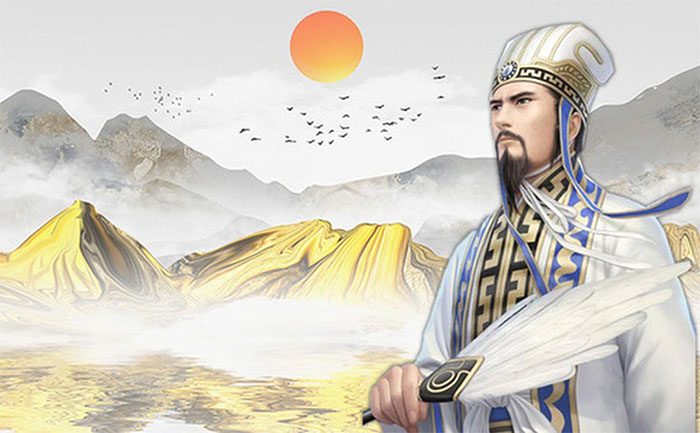
Zhuge Liang is a famous strategist known for his exceptional intelligence (Image: Weibo).
After “coming down from the mountain,” Zhuge Liang repeatedly demonstrated his extraordinary intellect or super high IQ. Just before the naval battle of Red Cliffs broke out, he was assigned an almost “impossible” task by Zhou Yu, the commander of Eastern Wu.
This task was to create 100,000 arrows in just ten days for the upcoming battle. Zhou Yu’s intention was clear: to eliminate Zhuge Liang as a formidable opponent for Wu.
Faced with this daunting situation, Zhuge Liang declared he only needed three days to complete the mission; if not, he would accept the death penalty.
Zhuge Liang cleverly utilized the foggy weather, sending dozens of small straw-covered boats to challenge Cao Cao’s camp.
Seeing the shadow of the warships, Cao Cao’s troops hastily rained arrows down on the “enemy.” The arrows embedded in the straw boats, allowing Zhuge Liang to simply collect them. Thus, he easily completed the task.
According to Sohu, despite Zhuge Liang’s intelligence and wisdom, there are still four other “geniuses” in Chinese history with superior IQs.
Zhang Liang
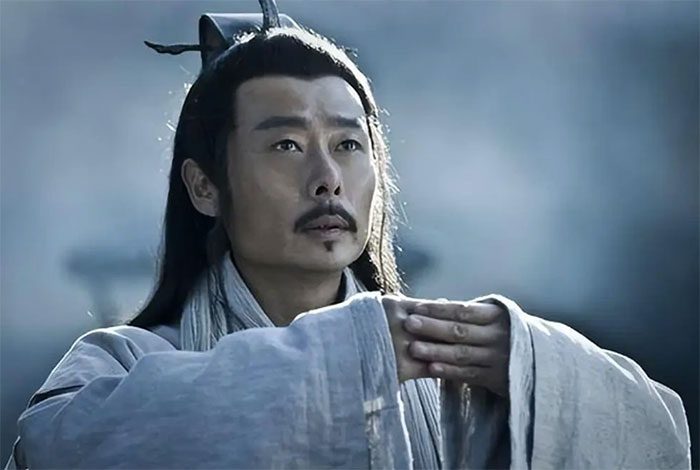
Zhang Liang ranks above Zhuge Liang in IQ assessments (Image: Sohu).
Among the five individuals deemed to have the highest IQs in Chinese history, Zhuge Liang ranks fifth, while Zhang Liang occupies the fourth position.
Zhang Liang was an advisor to Liu Bang during the Western Han dynasty and was known as the “finder of sages.”
According to the Records of the Grand Historian by Sima Qian and many other works, Zhang Liang met Liu Bang and became an important advisor, achieving many notable victories, such as persuading Xiang Yu to help Liu Bang escape death, inciting uprisings against the Qin dynasty, and communicating with Peng Yue, significantly contributing to Liu Bang’s ultimate victory.
Zhang Liang’s wisdom was evident not only on the battlefield but also in politics and diplomacy.
Later, when Liu Bang established the Han dynasty, Zhang Liang chose to retreat to his hometown, avoiding the risk of being overshadowed by his own accomplishments. This decision reflected his extraordinary intelligence and insight.
Fan Li
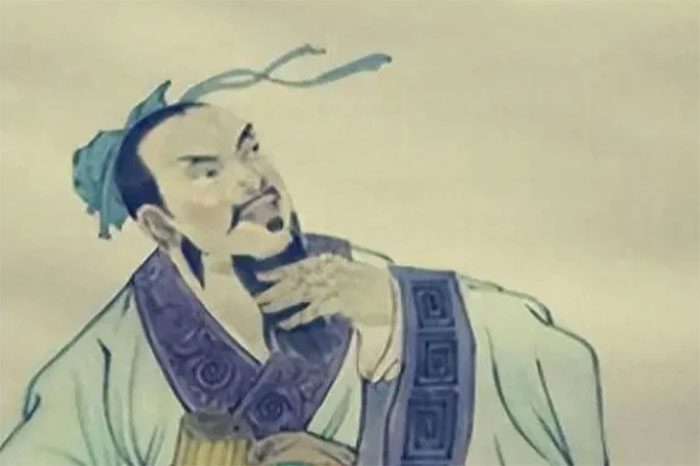
Fan Li is famous for his principle of “knowing when to stop and focus, knowing how to focus and remain calm” (Image: Sohu).
Fan Li was known as the “merchant sage.” He played a crucial role in the restoration of the state during the time of Gou Jian.
After Gou Jian achieved fame, Fan Li cleverly withdrew and returned to his hometown to fish, thereby avoiding a tragic end after his value had diminished.
Fan Li later became wealthy through business, showcasing his extraordinary intelligence and life philosophy.
His success in the business world was not only due to his acumen but also his understanding of the principle of “knowing when to stop and focus, knowing how to focus and remain calm.”
His success stories are still celebrated by later generations and serve as a model in the business community. It can be said that his IQ is difficult for anyone to match.
Guan Zhong
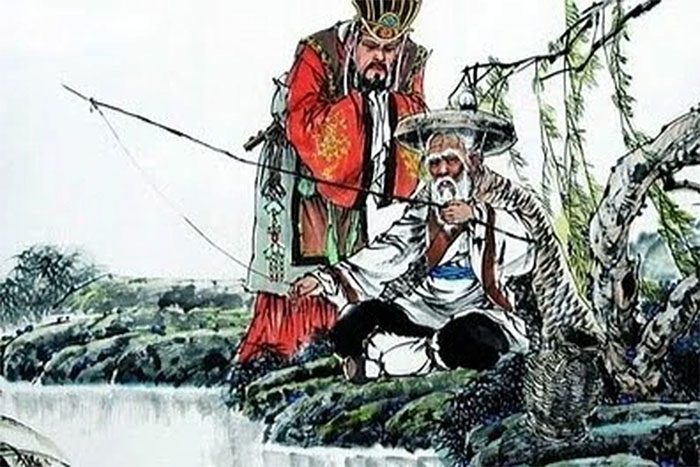
A painting of King Wen approaching Guan Zhong, who is fishing, seeking to recruit him out of respect for his talent (Image: Sohu).
Guan Zhong was a famous strategist during the Shang and Zhou dynasties. When he served as an official in the Shang dynasty, he noticed he was not valued, so he requested to resign and returned home to fish.
After King Wen of the Zhou dynasty discovered Guan Zhong’s talent, he personally came to recruit this sage. The painting of Guan Zhong sitting alone on a rock, casting his fishing rod, is still famous today.
Guan Zhong later repaid this trust by assisting King Wen and King Wu in defeating the Shang dynasty and establishing the Zhou dynasty.
His intelligence was evident not only in military matters but also in governance. He implemented a series of reforms that laid the foundation for the rapid rise of the Qi state.
His philosophy of governance was “to adapt to local customs, simplify rituals, facilitate industry and commerce, and focus on agricultural products like fish and salt.” This philosophy transformed Qi into a powerful state in a short period.
Guan Zhong’s wisdom and governance philosophy had a profound impact on subsequent generations, earning him great respect as a virtuous figure. He can be regarded as an all-knowing military advisor.
Gui Guzi
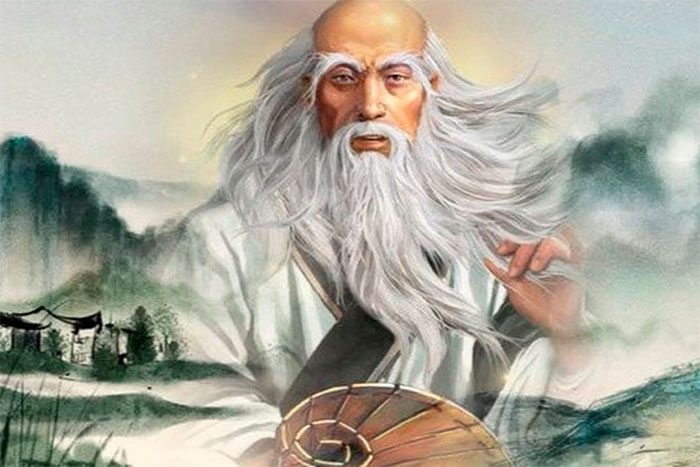
Gui Guzi is the highest IQ figure in Chinese history (Image: Sohu).
The figure with the highest IQ in Chinese history is Gui Guzi, also known as Xuanwei Zi, or Gui Guzi, Wang Qian Lao Tzu.
He was a politician, diplomat, yin-yang master, prophet, and influential educator during the Warring States period. His intellect focused on the art of interaction between yin and yang, rigidity and flexibility, movement and stillness.
This method has been learned by later generations, applied not only in military strategy but also in fields like astrology, determining latitude and longitude, and emotional intelligence.
He also trained many famous disciples, such as Zhang Yi, who was capable of moving “up and down” across different states during the Warring States period using the technique of “integrating vertical and horizontal paths.” This technique even influenced the political structure of that time.
Among his disciples was Sun Bin, renowned for his work on the Sun Bin Art of War, which has been applied in management, strategic business building, and personal life changes.
Gui Guzi’s intelligence was not limited to military and political matters. He also conducted extensive research in astrology. His doctrine emphasized “the right time, the right place, and the right people,” focusing on comprehensive application in all aspects, making it broadly applicable and practical.
The theories developed by Gui Guzi profoundly impacted various fields such as politics, military, and culture in ancient China.




















































